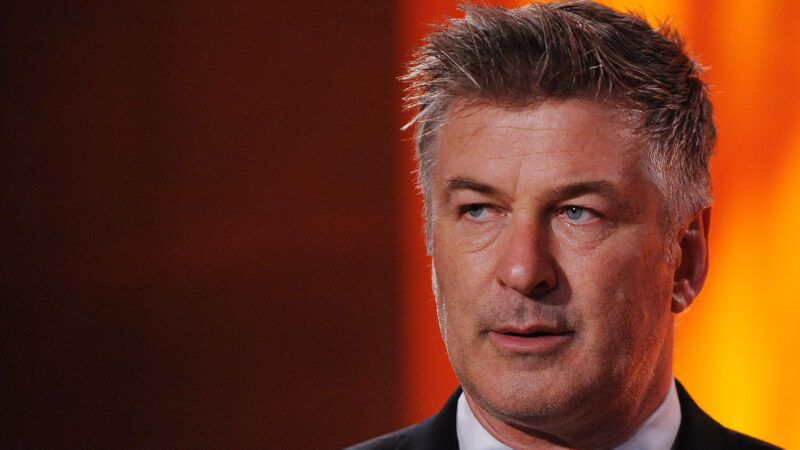Alec Baldwin's Gun Proposals Will Not Make Hollywood Sets Safer
Despite a tragic on-set death, there is no need to involve police officers in still more aspects of people's lives.

In October, a tragedy occurred on the set of Rust, a Western film in production in New Mexico, when star Alec Baldwin discharged a prop gun that he did not realize was loaded with live ammunition. Cinematographer Halyna Hutchins was killed and director Joel Souza was wounded by the projectile.
Since then, Baldwin, who is also a producer on the film, has been cooperating with the police investigation of the incident, and production has shut down. However, in public statements regarding his role in the incident and what he feels could be done differently in the future, Baldwin's ideas skew in the wrong direction.
Writing on his social media accounts Monday, Baldwin stated: "Every film/TV set that uses guns, fake or otherwise, should have a police officer on set, hired by the production, to specifically monitor weapons safety." While some actors have committed to certain changes—Dwayne Johnson, for example, said he will only use rubber guns on film sets from now on—Baldwin's suggestion is different: It is both unlikely to make a difference, and it could also set a poor precedent.
Logistically, the task is daunting: In 2019 (the last fully pre-pandemic year), there were at least 220 films released in the U.S. just by the major studios; the number of scripted original television series was over 500. Assuming that guns are involved in half of all films and television shows (likely a large underestimate, as some studies put the rate of movie violence of any kind at over 90 percent among top-grossing films), then full implementation of Baldwin's plan would require police departments to give up more than 350 officers each year to studio sets, just to supervise the handling of weapons. While Baldwin did specify that the studios should pay, the process would require police departments to either make do with fewer officers, or hire more to replace the on-set monitors.
Further, it is not clear what an on-set police officer could accomplish, above and beyond the system currently in place. The current industry safety protocols dictate that all weapons are the responsibility of the weapons master, or armorer, who is required to be on set whenever weapons are to be used. The armorer is solely responsible for loading and handling any weapons, and he is expected to test-fire every weapon, off set but in full view of the actor who will be using it, before filming the scene in which it will be used.
Given these existing parameters, the addition of a uniformed police officer to movie sets might not change much. By all accounts, the Rust set was already chaotic: The day of the accident began when several crew members walked off set to protest poor safety controls. The fatal mistake occurred when an assistant director—not the armorer, as required—handed Baldwin a gun that he said was safe to use, but was instead inexplicably loaded with live ammunition. It is entirely possible that an officer could have prevented this tragedy, though given the lax safety controls already at play on the set, the incident could also have occurred if the officer was running late, or on a meal break, or producers simply cut corners as they did in this case.
The closest existing parallel to what Baldwin is requesting are school resource officers (SROs), police officers assigned specifically to individual public schools. If the track record of these officers is at all informative for Baldwin's proposed on-set police presence, then it could actually decrease general safety. Nominally intended to decrease violence and school shootings, in practice, SROs are much more likely simply to criminalize everyday activity, turning general misbehavior and disagreements among children into matters for police involvement. Besides, in the statistically rare event of a school shooting, it is no guarantee that a resource officer would actually be of any help.
Despite Baldwin's long history as a pugnacious liberal, his plea seems to have nothing to do with politics: While Baldwin is unlikely to be held personally liable for the accident, he is almost certainly struggling to cope with unimaginable grief over the incident. At the same time, however, the facts simply do not support his proposition. Baldwin himself described the accident as "a one in a trillion episode." Indeed, given that the existing on-set safety protocols, if followed, could have avoided the incident altogether, this shooting does not justify welcoming armed agents of the state into yet another area of our lives.
